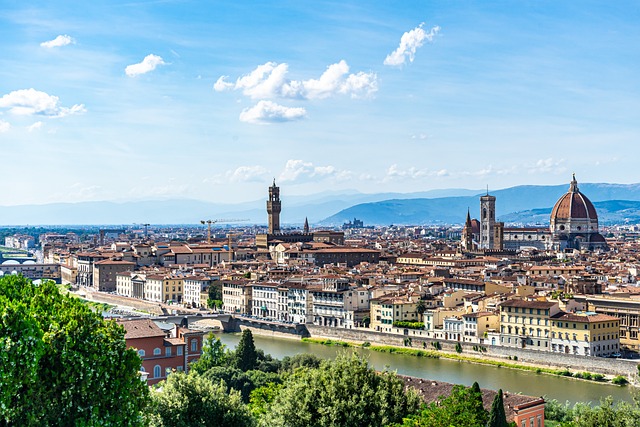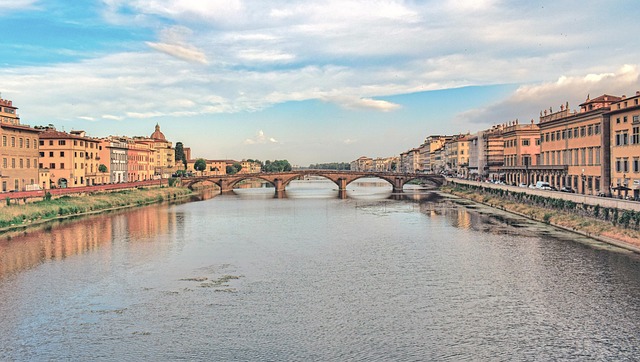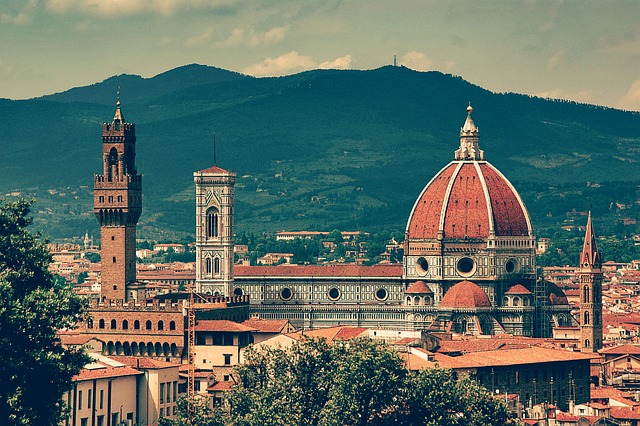Florence's founding traces back to the Roman era along the Arno River, evolving from a colony named Florentia to a powerful city-state. After the fall of Rome, it became a Germanic outpost, later growing into a trading hub between northern Europe and the Mediterranean. Its economic prosperity, fueled by banking and Renaissance innovations, attracted artists and intellectuals, solidifying its status as a cultural epicenter with profound historical significance.
Florence, a city that has left an indelible mark on art, culture, and history, emerged from humble beginnings as a small Roman settlement. This article delves into the captivating journey of Florence’s founding, tracing its roots back to the early settlements and Roman era. We explore the medieval transformation of a village into a thriving city-state and uncover the Renaissance flourish that propelled it into a power center, shaped by artists, merchants, and ambitious leaders. Discover how these factors contributed to Florence’s rich history and enduring legacy.
- Early Settlements and the Roman Era
- Medieval Transformation: From Village to City-State
- Renaissance Flourish: Artists, Merchants, and Power
Early Settlements and the Roman Era

The story of Florence begins in the ancient Roman era, when the area was a thriving center of trade and culture. Early settlements emerged along the Arno River, attracting people from various regions due to its strategic location and fertile land. The Romans recognized the potential of this site and established a colony, naming it Florentia, which means “flowery” or “blossoming.” This early foundation laid the groundwork for what would become one of Italy’s most influential cities.
During the Roman period, Florence flourished as a trading post, connecting commercial routes across Europe. The city’s strategic position facilitated the exchange of goods and ideas, contributing to its rapid development. As the Roman Empire declined, Florence transitioned into the hands of various Germanic tribes, marking a shift in its history that would ultimately shape its unique character.
Medieval Transformation: From Village to City-State

During the medieval period, a small village nestled in the heart of Tuscany began to transform into one of Europe’s most influential city-states: Florence. The founding of Florence is rooted in the 6th century AD when a group of settlers, attracted by the fertile valley and strategic location along trade routes, established a community around the powerful Arno River. Over centuries, this village evolved from a simple agricultural outpost to a bustling center of commerce, art, and culture.
The transition from a quaint village to a formidable city-state was catalyzed by several factors. The strategic position allowed Florence to become a crucial hub for trade between northern Europe and the Mediterranean. Furthermore, the city’s robust economy, fueled by banking, textiles, and later, the Renaissance, attracted talented artists, scholars, and artisans from across the continent. This influx of intellectuals and creatives laid the foundation for Florence’s cultural renaissance, solidifying its place in history as a birthplace of artistic and intellectual innovation.
Renaissance Flourish: Artists, Merchants, and Power

Florence’s foundation marked a pivotal moment in European history, birthing a city that would become a vibrant center of art, culture, and trade during the Renaissance. As settlers flocked to this newly established metropolis, they brought with them a diverse range of skills and aspirations. The city’s location along important trading routes facilitated an economic boom, attracting merchants who played a crucial role in shaping Florence’s prosperity.
Artists, too, found fertile ground in this thriving urban landscape. The patronage of wealthy families and the city’s vibrant cultural scene encouraged artistic innovation. Sculptors, painters, architects, and writers flourished, contributing to the city’s lasting legacy as a cradle of Renaissance creativity. This unique blend of economic power and artistic fervor propelled Florence to the forefront of European society, leaving an indelible mark on its founding history.
